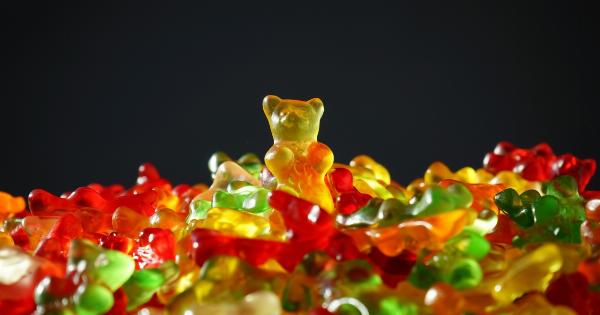Caffeine, a naturally occurring stimulant found in coffee, tea, and certain soft drinks, is the most widely consumed psychoactive drug in the world.
While caffeine can improve cognitive function, increase alertness, and enhance physical performance, it can also have negative effects on health if consumed in excess. In this article, we explore the dangerous truth about caffeine and its potential dangers.
What is Caffeine?
Caffeine is a natural stimulant compound found in coffee, tea, chocolate, and certain soft drinks. It works by stimulating the central nervous system, which can improve cognitive function, increase alertness, and enhance physical performance.
Caffeine can also affect mood, appetite, and metabolism, making it a popular ingredient in weight loss supplements.
The Effects of Caffeine on the Body
Caffeine can have both positive and negative effects on the body, depending on the amount consumed and the individual’s sensitivity to the drug. Some of the positive effects of caffeine include:.
- Increased alertness and concentration
- Improved cognitive function and memory
- Increased metabolism and fat burning
- Enhanced physical performance
- Reduced risk of Parkinson’s and Alzheimer’s disease
However, excessive caffeine consumption can also have negative effects on the body, including:.
- Insomnia and disturbed sleep patterns
- Anxiety, nervousness, and jitters
- Increased heart rate and blood pressure
- Dehydration, headaches, and dizziness
- Stomach upset and irritability
Caffeine and Addiction
One of the biggest dangers of caffeine is its potential to cause addiction. Caffeine is a psychoactive drug, and regular consumption can lead to physical dependence and withdrawal symptoms.
People who regularly consume large amounts of caffeine may experience headaches, fatigue, and irritability when they try to quit or reduce their intake. In severe cases, caffeine addiction can also lead to anxiety, depression, and social isolation.
Caffeine and Children
While most adults can consume caffeine safely, children should avoid excessive caffeine consumption. Caffeine can affect a child’s developing brain and nervous system, and may interfere with sleep, appetite, and learning.
Parents should limit their children’s caffeine intake, and encourage them to choose water or milk instead of soda or energy drinks.
Caffeine and Pregnancy
Pregnant women should also avoid excessive caffeine consumption. High levels of caffeine can increase the risk of miscarriage, low birth weight, and premature delivery.
Pregnant women should limit their caffeine intake to less than 200 milligrams per day, the equivalent of one 12-ounce cup of coffee.
Caffeine and Medications
Caffeine can interact with certain medications, including antibiotics, birth control pills, and antidepressants. People taking these medications should consult with their healthcare provider before consuming caffeine.
Caffeine and Energy Drinks
One of the most popular sources of caffeine is energy drinks. While these beverages can provide a quick boost of energy, they can also be dangerous if consumed in excess.
Energy drinks can cause heart palpitations, dehydration, and even heart attacks in some people. Additionally, many energy drinks contain high amounts of sugar and artificial ingredients, making them an unhealthy choice for regular consumption.
Caffeine and Alcohol
Caffeine is often combined with alcohol in mixed drinks, such as Red Bull and vodka or Jägerbombs. While these drinks can provide a stimulating effect, they can also be dangerous.
Mixing caffeine and alcohol can mask the effects of alcohol, leading people to drink more than they normally would. This can result in alcohol poisoning, impaired judgment, and dangerous behaviors. Additionally, mixing caffeine and alcohol can also lead to dehydration, heart palpitations, and other negative health effects.
Caffeine and Sleep
Sleep is an important part of overall health, and caffeine can interfere with this important process. Consuming caffeine within six hours of bedtime can disrupt sleep patterns, leading to insomnia and other sleep-related problems.
People who have trouble sleeping should avoid caffeine in the afternoon and evening, and consider other relaxation techniques to help them fall asleep.
Caffeine and Withdrawal
As mentioned earlier, caffeine addiction can lead to physical dependence and withdrawal symptoms. Some of the common symptoms of caffeine withdrawal may include:.
- Headaches
- Irritability and mood swings
- Fatigue and lethargy
- Nausea and vomiting
- Inability to concentrate
However, caffeine withdrawal symptoms usually subside within a few days, and can be managed with over-the-counter pain relievers and plenty of rest.
The Bottom Line
Caffeine is a widely used and popular stimulant, but it can also have negative effects on health if consumed in excess. People who regularly consume caffeine should be aware of the potential dangers, and limit their intake if necessary.
While some people may enjoy the stimulating effects of caffeine, others may find that it interferes with sleep, causes anxiety, or leads to addiction. By understanding the dangerous truth about caffeine, people can make informed decisions about their caffeine consumption and overall health.





























